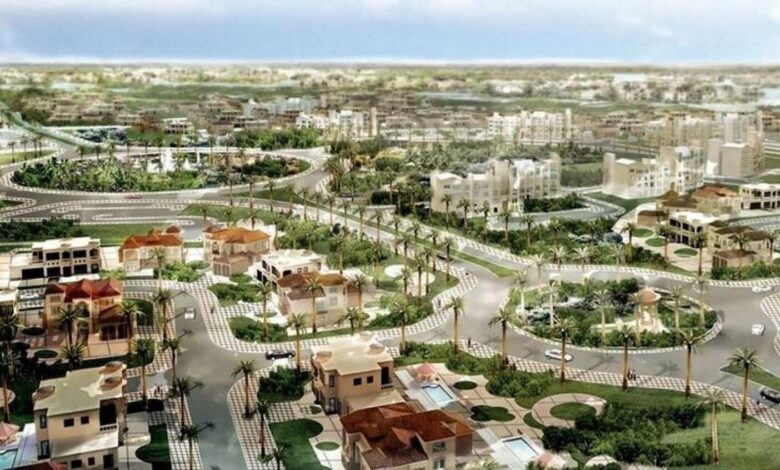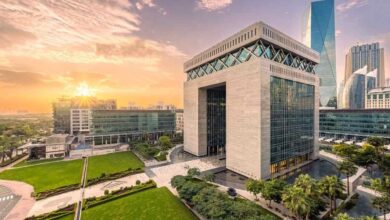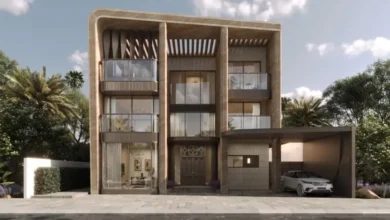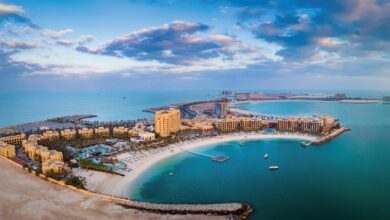
Overall residential units sold in Dubai have almost reached the total numbers of 2023, data showed on Monday.
According to Emirates NBD’s Residential Market Monthly, total residential units sold year to date (YTD) have reached 104,250, only 14,000 units short of the total transactions recorded in 2023.Burj Al Arab Drone View
“We anticipate activity levels to remain relatively stable for the remainder of the year, thereby setting a record for the highest number of residential units sold across the city,” Swapnil Rajasekharan Pillai Director, Real Estate Research at Emirates NBD, said in a note.
When compared to the previous year, the total units sold in August increased by 32 per cent year on year, Emirates NBD data showed. The YTD transaction numbers have also increase by 31 per cent year on year compared to the 79,300 units sold between January to August in 2023. The total value of properties sold in August reached Dh37.23 billion, lower than the Dh40.5 billion recorded in July. With the latest set of transactions, the total value of units sold across Dubai reached Dh265 billion YTD, up 30 per cent year on year and a new record for the city. “The year on year increase in transactions and average sales price across the city and an increase in the launch of luxury and high-end developments have been the primary reason for the significant jump in the total value of properties transacted across the city,” Pillai said.
Off-plan properties remain the preferred option for investment, according to Emirates NBD research. A total of 10,470 units or 66 per cent of the total transactions in August were off-plan properties. While the overall demand and market sentiment across the city has improved over the last few years, the off-plan segment has seen the biggest jump in transaction volumes. “To put this in context, in 2018 a total of 17,600 off-plan units were sold across Dubai while more than 69,100 off-plan units have already been sold in the year through August 2024. At current transaction levels we could see more than 100,000 off-plan transactions for the full year, a circa 468 per cent jump in transaction activity when compared to 2018,” Pillai said.
Jumeirah Village Circle (JVC) was the hotspot for off-plan transactions in August. This micro-market has consistently been among the top three locations for offplan transactions throughout the year. A total of 1,000 units were sold across the sub-market in August. This was followed by Dubai South with close to 860 transactions in August. Dubai South as a location has seen renewed interest from both investors and end-users on the back of recent government announcements with regards to the Al Maktoum International (DWC) airport. For the first six months of the year, this sub-market witnessed only 722 off-plan transactions and in the last two months alone, more than 1,290 units have been transacted.
Another upcoming area for off-plan transactions is Bu Kadra. The sub-market is located adjacent to Sobha Hartland and has seen a steady launch of new projects over the last few quarters. In August, 780 units were sold in this sub-market and more than 1,900 units have been sold so far this year.
Villa transactions remain stable. Demand for villa transactions has remained stable throughout the year. In August, 3,000 villa units were sold, of which 2,270 (around three-quarters) were off-plan. As per industry sources, transaction activity across ready properties in established locations of the city has slowed in recent months. Existing landlords are either holding on to their properties or are expecting a significant premium resulting in most buyers opting for off-plan projects.
The Dubai South market was the preferred choice for off-plan villa developments in August. A total of 670 units or 30 per cent of the total off-plan villa transactions was in this sub-market. At a project level, transaction activity was strong across the Athlon by Aldar project and The Valley project by Emaar. Both these projects have seen close to 1,000 transactions in August. Damac Hills 2, Villanova and Al Furjan were the most active markets for ready villa transactions. “Relatively affordable price points, easy access to the various commercial hubs of the city and presence of support retail have driven demand for properties across these locations,” Pillai said.
Dubai is among the few global cities with significant new supply. New project launches across the city have been buoyant. So far this year, Dubai has seen more than 93,000 new units launched across various sub-markets. This is the highest number of units launched in the city’s development history, data showed.
However, unlike in previous years, where supply was concentrated across few master-planned communities, most of the new unit launches have been part of existing master-planned communities or as stand-alone developments. “We have also noticed an increase in supply from relatively smaller developers (in-terms of past development track-record and completed stock). Going forward, we anticipate supply addition will remain strong as the city matures and developers capitalise on the growth momentum. Most of the new supply is expected across locations such as Dubai South, JVC, Al Furjan and Business Bay. We may also witness significant new unit launches across upcoming locations such as Bu Kadra, Dubai Maritime City, Dubai Islands and along the E311 and E611,” Pillai said.
Asset prices across apartments have increased by an average 12 per cent year on year across the mature sub-markets of the city. However, on a month-on-month basis, prices have remained relatively stable. Most of the price increase was witnessed across locations with limited new supply and negligible development potential.
Price growth across the villa segment was more robust compared to apartments. On average, a 23 per cent year on year increase in prices across the villa segment was observed in August.
Similar to apartments, prices have remained stable on a month-on-month comparison. “We note that new launches have been introduced to the market at a premium to the existing developments in their respective sub-markets. In some cases, these premiums have been observed to be as high as 30 per cent when compared to the current average price points. This is likely to push the average prices across a few established communities higher once these projects are handed over to the market,” Pillai noted.





